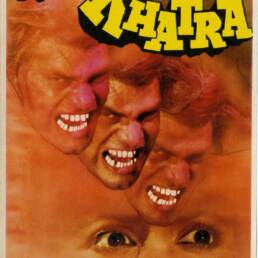According to the recent data published by the Law ministry in Parliament, only 15.3% of lawyers are women in India. An astonishingly small number which stood at an absolute zero only a century ago. Thanks to a Baghdadi Jewish woman from Calcutta who dared to break all barriers.
Did you know that if it wasn’t for Menaka Guruswamy, same-sex relationship would still have been illegal in India or if it wasn’t for Indira Jaising, equal inheritance rights for Syrian Christian women in Kerala would not have been possible?
These are only a couple of examples of brave hearts who shine brightly in a formidable list of trailblazing women lawyers in India. Cornelia Sorabji being the first woman lawyer in India remains the pioneer in that list.
However, there’s a missing name in that list without whom this list would either never have been made or would have been significantly smaller.
Someone who could not become a lawyer under dramatic circumstances but paved the path for all women who would aspire to become one. This is the story of a certain Regina Guha.
Born to a Bengali Baghdadi Jewish family in Calcutta, Regina’s early aspiration of becoming a lawyer came from her father who was in the same profession. After topping her class in Master of Arts, she enrolled for a law degree from Calcutta University and earned it with flying colours in 1916.
Back then, the legal profession was guarded with hallowed walls dominated only by masculinity. The scene was familiar in the United Kingdom and USA as Gwyneth Bebb and Myra Bradwell were fighting for similar rights in their respective countries.
When Regina’s application to enrol as a pleader in the Alipore District Judge’s court got denied because of her gender, she challenged the verdict on the ground that the governing legislation stated qualified “persons” could enrol as lawyers and the definition of ‘person’ also included women.
Regina’s case was argued in the Calcutta High Court by Eardley Norton, a civil rights advocate and one of the earliest members of the Indian National Congress.
On 29th August 1916, a special bench of five judges – Chief Justice L. Sanderson, Justice A. Mookerjee, Justice W. Chitty, Justice Teunon, and Justice Chowdhury unanimously concluded that only men are entitled to enrol as pleaders.
The verdict quoted – “It is clear that the intention of the Legislature was to deal with a recognised existing profession, viz, that of Pleaders, which, up to that time, constituted of men only and to which men only could belong.”
“…in respect of which it was admitted that no woman had ever applied for admission as a Pleader. As the law now stands, Miss Regina Guha is not entitled to be enrolled as a Pleader…”.
Regina’s dreams were shattered but she had built the road which was to be followed later by another fellow Bengali Sudhanshubala Hazra. This time the petition was heard at the Patna High Court only to come to a similar conclusion.
The fight against an unethical gender discrimination started by Regina and Sudhanshubala had already caught the attention of the country by then that enabled Dr. Hari Singh Gaur, a member of the Central Legislative Assembly to move a Bill in 1924 to end this discrimination once and for all.
The Bill was heavily debated but eventually the conclusion came in favour of Gaur and the temple of justice finally opened its door for the women of the country to enter.
By the time the verdict was announced, Regina who had started to pursue an alternative career as the headmistress and later as the principal of the Jewish Girls’ School in Calcutta had sadly passed away.
To commemorate her contribution towards women’s education and legal rights, Calcutta University awards a medal to the student who stands first in the M.A. English examination every year.
Though Regina Guha could not live the dream of a legal practitioner, her legacy remains with every woman lawyer of our country.
If it wasn’t for her indomitable courage to fight the social stigma of gender discrimination, who knows how long our women trailblazers would have to wait to see the dawn of justice!
Sources:
Calcutta High Court, In Re: Regina Guha vs Unknown on 29 August, 1916.
Arvind Jain. “No place for women in temples of justice”
Aneesha Mathur. “Only 15% lawyers in India are women: Govt tells Parliament”.
Rosemary Auchmuty. “The tragic case of the legal star history forgot”.
Aynes, Richard L. Bradwell v. Illinois: Chief Justice Chase’s Dissent and the “Sphere of Women’s Work”. Louisiana Law Review.




